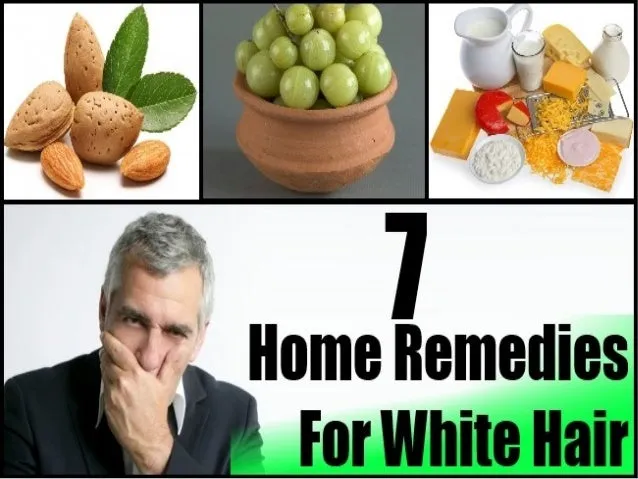What Causes Hair Whitening?
Understanding the root causes of hair whitening is crucial to effectively address the issue. Hair whitening, often referred to as graying, is primarily caused by a reduction in melanin, the pigment responsible for hair color. This pigment is produced by melanocytes, specialized cells located in the hair follicles. As we age, melanocyte activity naturally decreases, leading to a gradual decline in melanin production. This process is genetically determined, meaning your predisposition to gray hair is largely inherited. However, several other factors can accelerate or contribute to hair whitening. These include oxidative stress, where an imbalance of free radicals and antioxidants damages melanocytes, and nutritional deficiencies, such as a lack of vitamin B12, vitamin D, and iron. Lifestyle choices, including smoking and excessive stress, are also significant contributors. Furthermore, certain medical conditions, like thyroid disorders and autoimmune diseases, can impact hair pigmentation. Recognizing these factors can guide you towards targeted solutions.
The Science Behind Hair Whitening
The science behind hair whitening involves complex biological processes within the hair follicle. Melanin, the primary pigment, exists in two main forms eumelanin (responsible for black and brown shades) and pheomelanin (for red and yellow shades). The combination and concentration of these pigments determine your natural hair color. The process of hair whitening involves several key components. Firstly, the decline in melanocyte activity, the cells which produce melanin, is a primary cause. Secondly, oxidative stress damages the melanocytes and inhibits melanin production. Free radicals, unstable molecules, can attack the melanocytes, leading to cell damage and reduced pigment. Thirdly, the accumulation of hydrogen peroxide, naturally produced in hair follicles, can bleach hair from the inside out if the body’s ability to break it down is compromised. Lastly, genetics play a significant role, and genes determine the age at which hair whitening begins and the rate at which it progresses. Understanding these scientific aspects of hair whitening can help you appreciate the potential of preventative measures and remedies.
Top 5 Home Remedies to Stop Hair Whitening
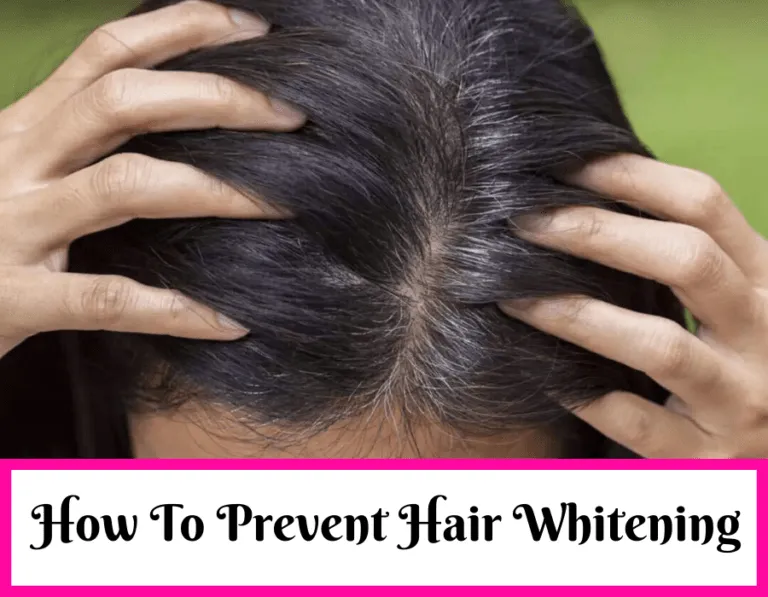
While there is no guaranteed way to completely reverse hair whitening, several home remedies can slow down the process and improve hair health. These remedies often focus on providing essential nutrients, reducing oxidative stress, and promoting overall well-being. It’s important to note that results vary, and consistency is key. It’s essential to be patient and integrate these remedies into your routine. Remember to consult with a healthcare professional or a dermatologist before starting any new treatment, especially if you have underlying health conditions or are taking medications. These remedies are natural, safe and easy to follow.
Amla (Indian Gooseberry) for Hair Whitening
Amla, also known as Indian gooseberry, is a powerhouse of nutrients and a popular remedy for various hair concerns. Rich in Vitamin C and antioxidants, amla helps combat free radicals that contribute to hair whitening. Its properties promote melanin production and maintain natural hair color. Amla also strengthens hair follicles, reduces hair fall, and improves hair texture. The benefits of amla are linked to its ability to nourish the scalp and hair. With regular use, amla can slow down the graying process. Amla is widely used in Ayurvedic medicine for hair care, and the ingredients are completely safe for use. Regular use can improve hair health.
How to Use Amla for Hair
There are several ways to incorporate amla into your hair care routine. One popular method is to use amla oil, which can be applied to the scalp and hair, left on for a few hours, and then washed off. You can also make an amla hair mask by mixing amla powder with water or other ingredients like yogurt or honey. Apply the mask to your hair and let it sit for about 30 minutes before rinsing. Furthermore, amla can be consumed as a supplement or added to your diet in the form of amla juice or dried amla. It is advisable to start with a patch test if you have sensitive skin. Amla is often well-tolerated, but reactions may occur. Ensure that you maintain a routine for the best results.
Curry Leaves for Hair Whitening
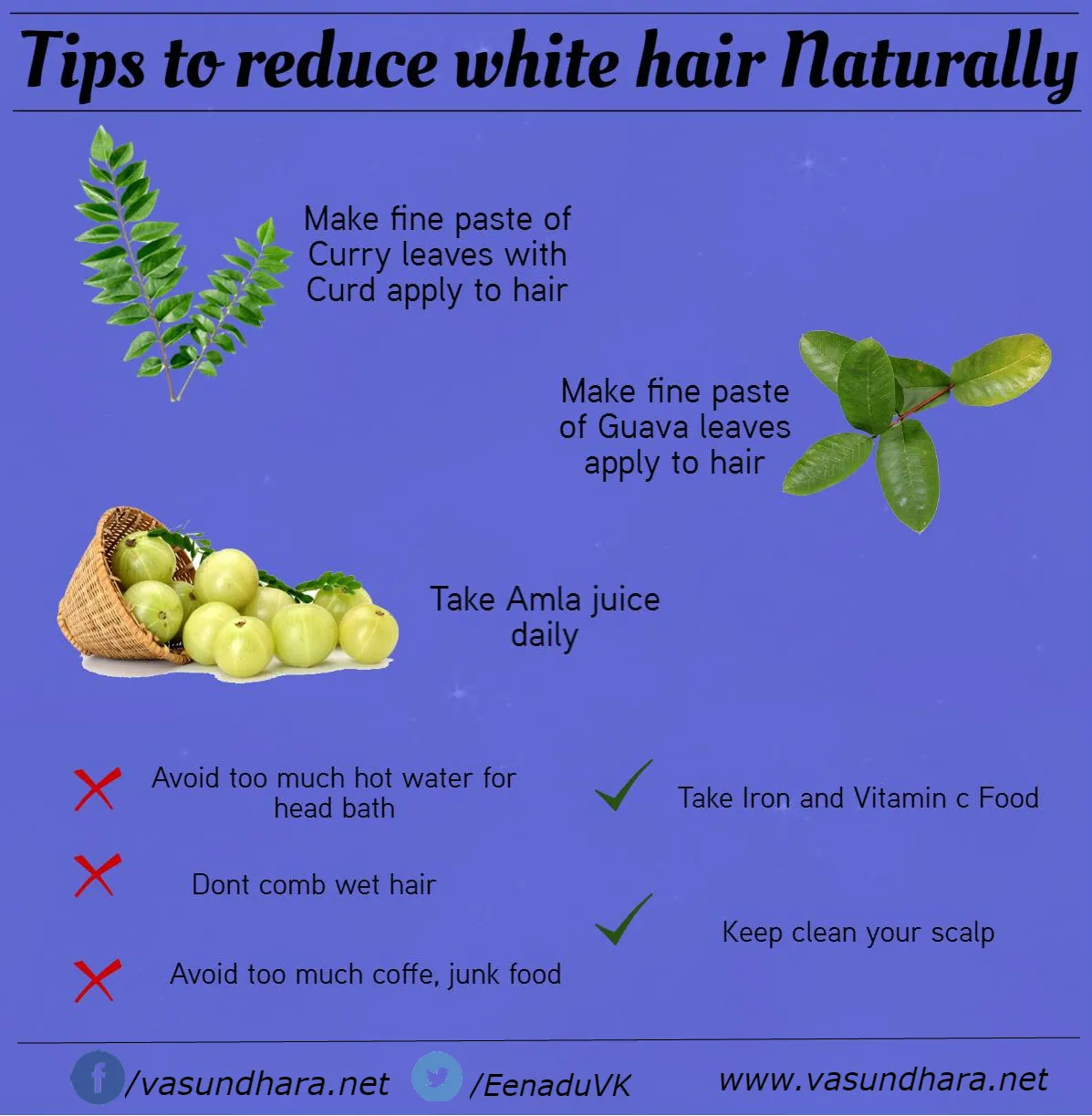
Curry leaves, commonly used in Indian cuisine, are also known for their beneficial effects on hair health. They are rich in antioxidants that protect hair follicles from damage caused by free radicals. Curry leaves also contain vitamins and minerals that nourish the scalp and hair, promoting melanin production and preventing hair whitening. Moreover, curry leaves help strengthen hair roots, reduce hair fall, and improve hair texture. The vitamins and minerals in curry leaves promote scalp health. Curry leaves are also rich in antioxidants, which fight off free radicals that can damage hair follicles. The combination makes it a beneficial option for preventing hair whitening. The benefits of curry leaves are related to their high nutrient content and antioxidant properties.
Using Curry Leaves for Hair
To use curry leaves, you can incorporate them into your hair care routine in various ways. One popular method is to make a curry leaf hair mask by grinding fresh curry leaves into a paste and mixing it with yogurt or coconut oil. Apply this mask to your hair and scalp, leave it on for about 30 minutes, and then rinse thoroughly. You can also boil curry leaves in coconut oil until they turn black, strain the oil, and use it to massage your scalp. Regular use of curry leaves helps improve hair health. Incorporating curry leaves into your routine is simple and effective. Following the above methods can give you the best results, and it can be done from the convenience of your home.
Coconut Oil and Lemon for Hair Whitening
Coconut oil and lemon are a powerful combination for hair care, offering several benefits that can help prevent hair whitening. Coconut oil penetrates the hair shaft, providing deep moisturization and nourishment. It contains fatty acids that strengthen hair and protect it from damage. Lemon juice is rich in vitamin C and antioxidants. When combined with coconut oil, lemon helps combat free radicals, promoting scalp health and improving hair texture. This combination helps in promoting the production of melanin. It also reduces premature hair whitening. This remedy is a gentle way to improve hair health and restore natural hair color. It is known to be very safe and easy to follow.
Applying Coconut Oil and Lemon
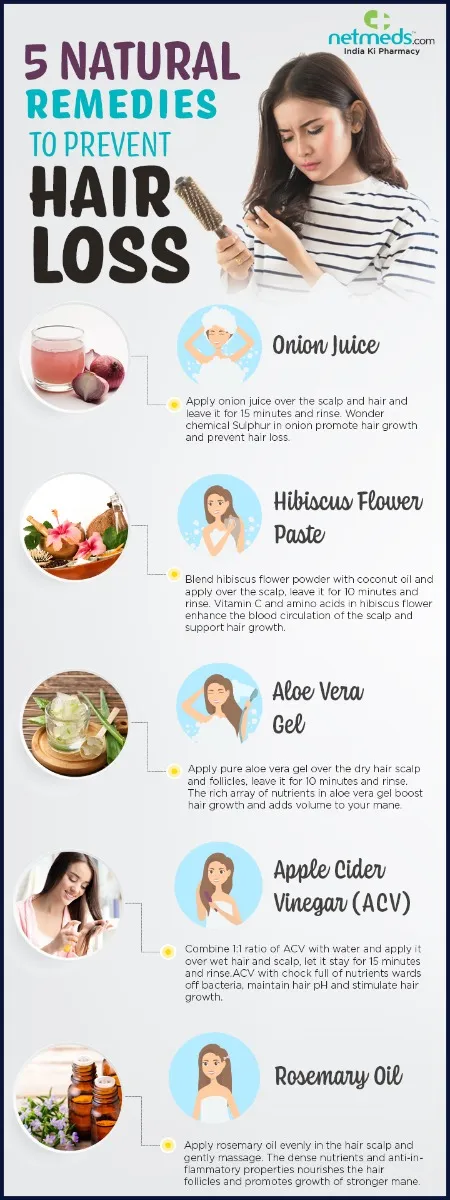
To use this remedy, mix coconut oil and lemon juice in a bowl. The ratio of ingredients can vary based on your hair length. A common ratio is to use two tablespoons of coconut oil and one tablespoon of lemon juice. Apply the mixture to your scalp and hair, massaging gently. Leave it on for about 30 minutes to an hour, allowing the ingredients to penetrate your hair. Rinse thoroughly with a mild shampoo and warm water. Repeat this process once or twice a week for best results. The application is simple and can be easily added to your routine. Regular usage of this combination will help improve the health and appearance of your hair.
Black Tea to Reverse Gray Hair
Black tea is another effective home remedy. It contains natural pigments that can darken hair and reduce the appearance of gray hairs. It helps boost melanin production and acts as a natural dye that darkens hair strands. Black tea also strengthens hair follicles and improves shine. The tannins in black tea help to reduce hair whitening. This natural remedy is a great alternative to chemical dyes. Black tea has properties that will help with hair whitening. With consistent usage, you will see positive results, and it is very easy to use.
How to Use Black Tea for Hair
To use black tea, brew a strong cup of black tea and let it cool. Once cooled, pour the tea over your hair, ensuring all strands are saturated. Leave it on for about an hour or as desired, and then rinse with cool water. You can also mix black tea with other ingredients like henna or coffee grounds for enhanced results. Some people find that it helps to add black tea to their conditioner for ongoing maintenance. Regular use will improve hair color and texture. You can adjust the strength of the tea and the time you leave it on depending on your hair type and desired shade.
Onion Juice for Hair Whitening
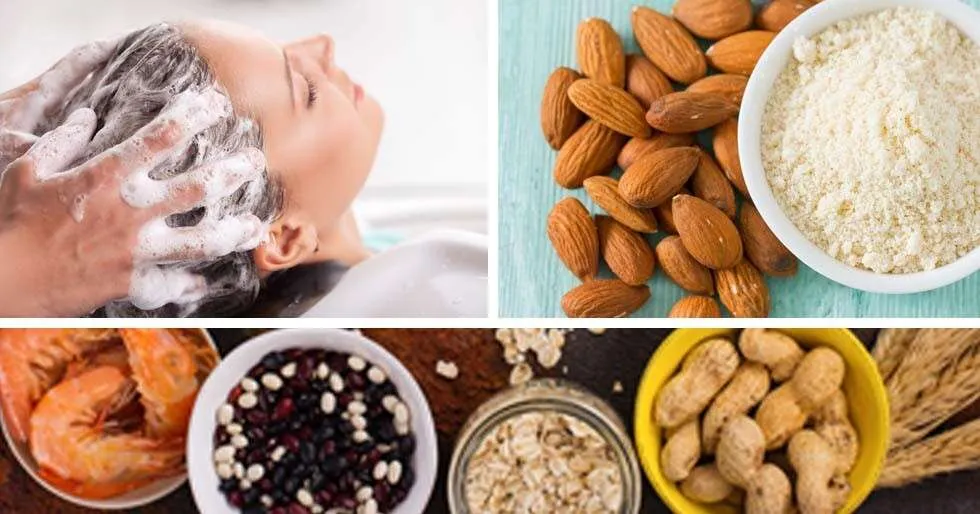
Onion juice is rich in sulfur, which is essential for hair health. It helps stimulate hair growth, strengthens hair follicles, and reduces hair fall. Onion juice is known for its ability to boost melanin production, which can reverse or slow down the hair whitening process. It also has antimicrobial properties that help maintain scalp health. Regular use of onion juice can lead to thicker, stronger, and darker hair. This home remedy is safe and very effective for preventing hair whitening. While the smell can be strong, the benefits of using onion juice for hair are well worth it. The high sulfur content is great for hair.
Applying Onion Juice for Hair
To use onion juice, extract the juice from onions by blending or grating them and then straining. Apply the juice directly to your scalp, massaging gently for a few minutes. Leave it on for about 30 minutes to an hour, allowing it to penetrate the hair follicles. Rinse thoroughly with a mild shampoo and water. You may want to follow up with a conditioner to reduce the onion smell. Repeat this process once or twice a week for optimal results. You may see results within a few weeks. It is best to be consistent when following this remedy.
Lifestyle Changes to Prevent Hair Whitening
In addition to home remedies, lifestyle changes can play a significant role in preventing hair whitening and promoting overall hair health. Following a balanced diet rich in essential nutrients, managing stress levels, and avoiding harmful habits such as smoking are all important steps. These changes work in harmony with home remedies and can greatly improve the results. Adopting healthier habits can help slow down the aging process and keep your hair healthy and strong. Incorporating these lifestyle changes into your daily routine will contribute significantly to your hair health.
Dietary Adjustments for Healthy Hair
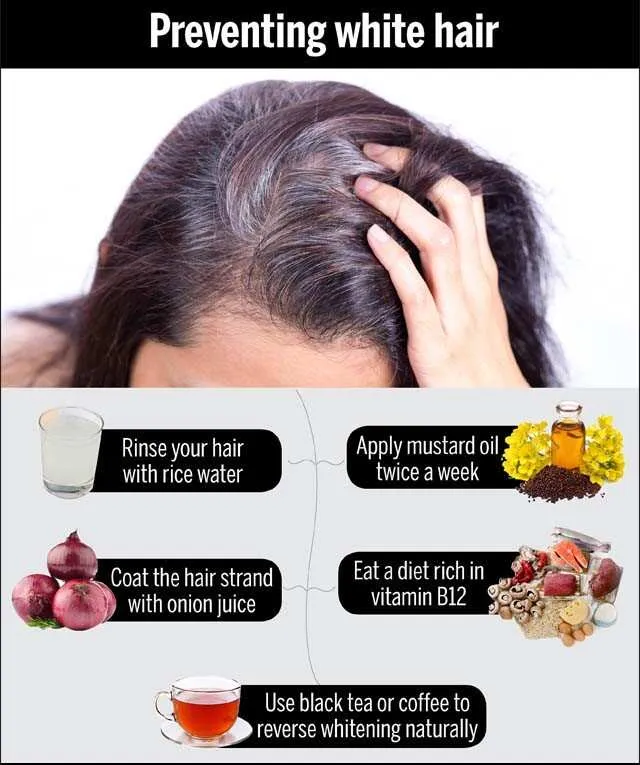
Your diet plays a vital role in the health and appearance of your hair. Consuming a balanced diet rich in vitamins, minerals, and antioxidants provides the necessary building blocks for healthy hair growth and pigmentation. Include foods rich in vitamin B12, vitamin D, iron, zinc, and protein in your diet. These nutrients are crucial for maintaining hair health. Incorporate colorful fruits and vegetables, lean proteins, and healthy fats into your diet. Foods rich in antioxidants, such as berries, leafy greens, and nuts, help to combat free radicals and protect hair follicles from damage. Avoid processed foods, sugary drinks, and excessive alcohol, as they can contribute to hair damage and premature whitening. A well-balanced diet provides essential nutrients and antioxidants.
Managing Stress for Hair Health
Stress can significantly impact hair health and accelerate hair whitening. Chronic stress can disrupt the normal hair growth cycle. It can also deplete essential nutrients and increase oxidative stress, which can damage melanocytes and reduce melanin production. Managing stress is crucial for preventing premature graying and maintaining healthy hair. Incorporate stress-reducing techniques into your daily routine, such as yoga, meditation, deep breathing exercises, or spending time in nature. Get enough sleep and maintain a healthy work-life balance. Engage in hobbies and activities you enjoy to reduce stress levels. Seeking professional help, such as therapy, may be necessary if you are struggling with significant stress or anxiety. Taking care of your mental well-being is essential for overall health and hair health.
When to See a Professional
While home remedies can be effective, it is important to know when to seek professional advice. If you notice sudden or significant hair whitening, or if it is accompanied by other symptoms, it is best to consult a dermatologist or healthcare professional. A dermatologist can assess your hair and scalp condition and determine the underlying causes of hair whitening. They can also recommend appropriate treatments, medications, or lifestyle changes. In cases where hair whitening is related to underlying medical conditions, early diagnosis and treatment are essential. A professional can provide tailored advice and guidance.
Consulting a Dermatologist

A dermatologist is a medical doctor specializing in skin, hair, and nail health. They can perform a thorough examination of your hair and scalp, diagnose any underlying conditions, and recommend appropriate treatments. They may conduct tests, such as blood tests, to identify potential nutrient deficiencies or underlying medical issues. They may also prescribe medications, topical treatments, or other therapies to address hair whitening. Dermatologists can provide personalized guidance. Regular visits can help with long-term hair and scalp health. Consulting a dermatologist is the best way to get accurate assessments.
